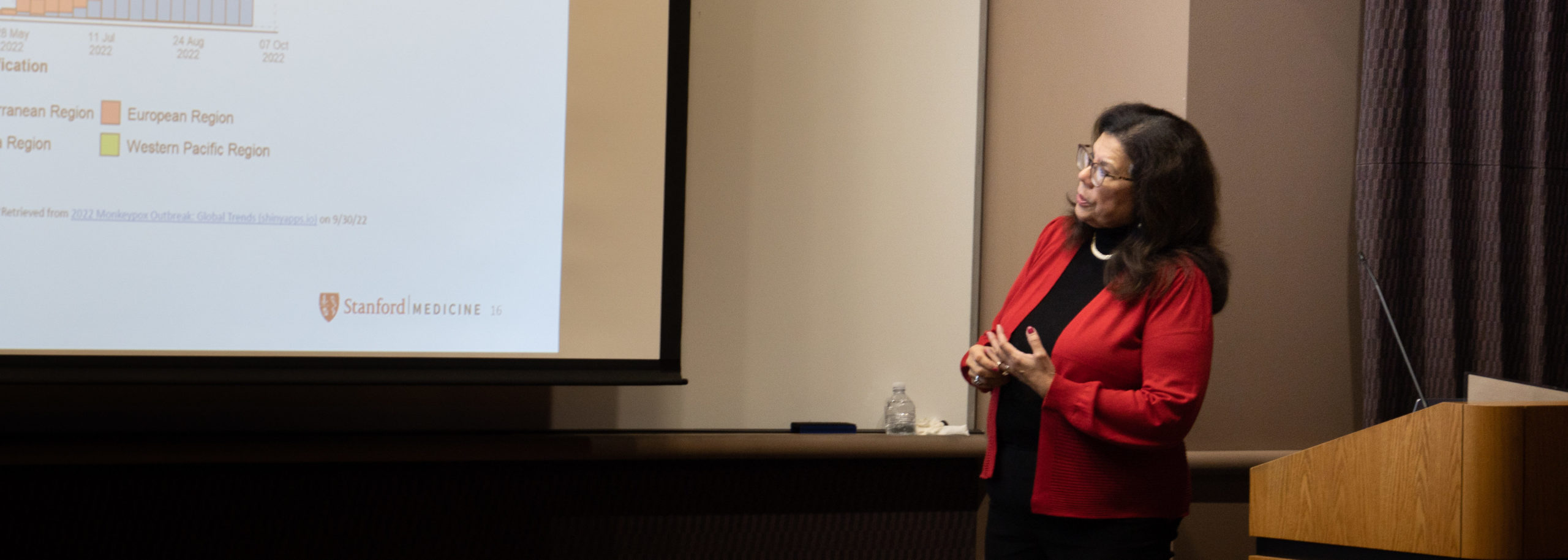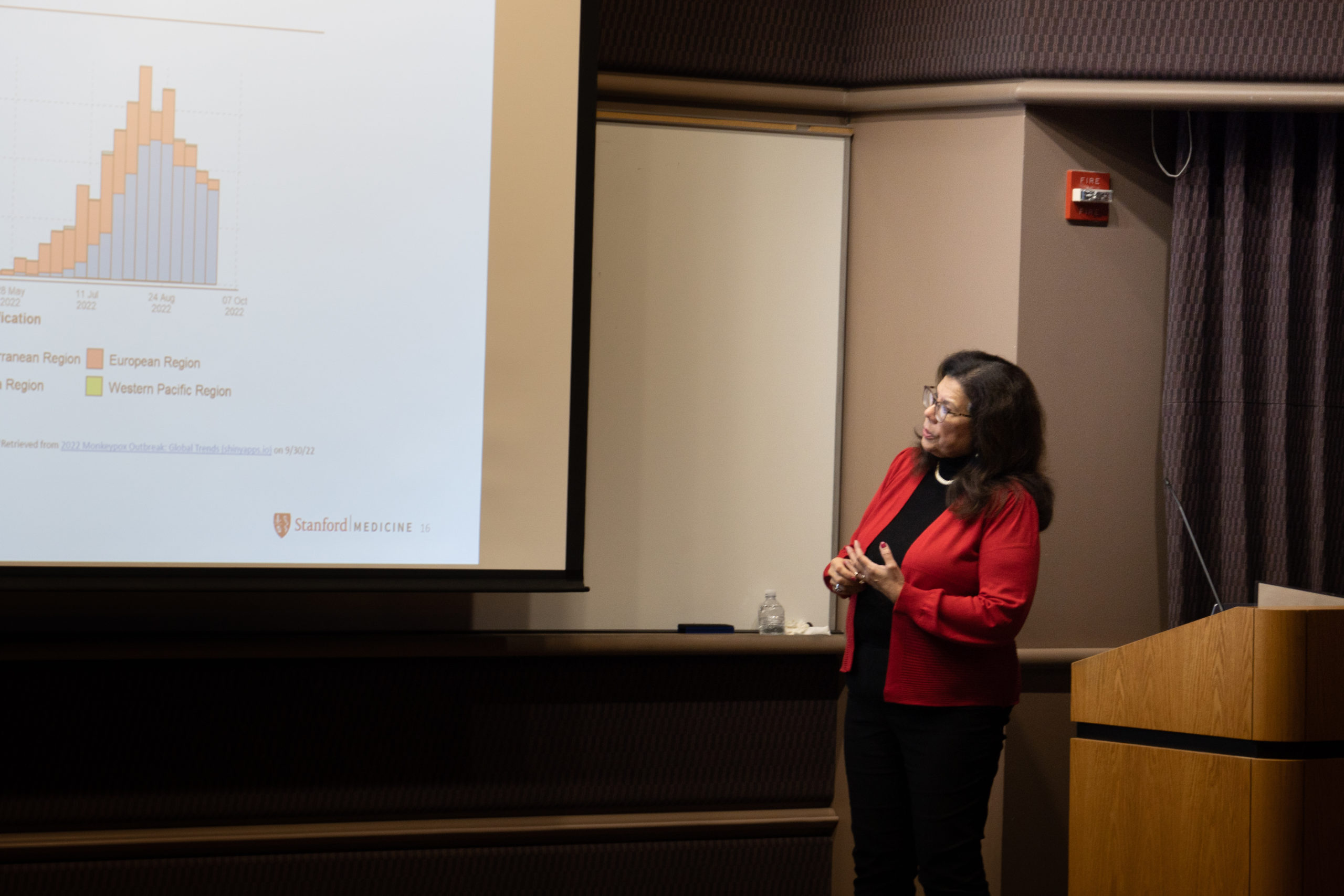Published: 12/15/2022
By Jamie Hansen, Communications Manager
When Yvonne (Bonnie) Maldonado, MD, was a high school student in Los Angeles, she and her best friend decided to visit UCLA to see what college was all about. To Maldonado, the enormous campus struck her as a city unto itself—huge, but exciting. Inspired by what she saw, Maldonado wound up attending UCLA, the first in her family to go to college.
Speaking to students about her work and career path during a Global Health Faculty in Focus lecture on Dec. 5, Maldonado underscored the importance of peer support, mentorship, workplace diversity, and following one’s interests and core values. These elements, she said, were critical to her success in college and shaping career trajectory, in which she has become a leading pediatric infectious disease specialist, advocate for equity and diversity, and global health leader.
“Don’t ever think you can’t do or be the things that you are interested in, because that’s how you start your career,” she said. “When I look back at all the things I had to do to get where I am, the key is that I looked for people who were supportive and stayed away from those who weren’t.”
For Maldonado, this included connecting with peers at UCLA. They formed a support group, Chicanos for Creative Medicine.
“We brought together a lot of peer support, so we could help each other learn how to study and figure out courses,” she said. “We were terrified that if we asked our professors questions, they would think we were asking stupid questions and that it would really impact us poorly.”
Maldonado recalled having one professor she felt comfortable going to for advice — a Latino physics professor. This underscored for her the importance of workforce diversity and students having professors they can identify with — something she now champions as the Stanford School of Medicine’s Senior Associate Dean for Faculty Development and Diversity.
Another turning point in Maldonado’s career came when she was an infectious disease fellow at Johns Hopkins University. The head of the division, Richard Moxon, noted her interest in vaccines, and invited her to a division retreat to learn more about vaccines. “I thought the fact that he would talk to a lowly medical student like me and invite me to this retreat was amazing,” she said. “I always try to cultivate opportunities for trainees, because when you’re in a field you get so involved and forget that everyone else doesn’t have the same opportunities and experiences.”
Maldonado fell in love with vaccines and worked on one of the first rotavirus vaccines at Johns Hopkins before pursuing a formative fellowship with the Centers for Disease Control’s Epidemic Intelligence Service. Following that, she returned to Stanford, where she’d attended medical school. She’s remained here for nearly three decades, working with partners around the world to end polio, reduce HIV in children, and vaccinate children against COVID-19.
Maldonado said her involvement with global health has made her time at Stanford particularly fulfilling, enabling her to meet and work with people all over the world, including Mexico and Sub-Saharan Africa.
“It feels that I really haven’t been here that long, because the time just flew by while working with colleagues from so many different places,” she said.
In addition to sharing insights from her own life and career, Maldonado offered lessons learned from the response to mpox (formerly called monkeypox) and COVID-19, and how these lessons can be leveraged to foster vaccine equity and help prepare for the next pandemic.
——–
About Dr. Maldonado
Dr. Bonnie Maldonado has been working to ensure better health outcomes for underserved populations around the world for more than three decades. In addition to being a core member of the CIGH leadership team and Taube Professor of Global Health and Infectious Diseases, she is Professor and Chief of the Division of Infectious Diseases, Department of Pediatrics at the Stanford School of Medicine. She is also the Senior Associate Dean for Faculty Development and Diversity.

